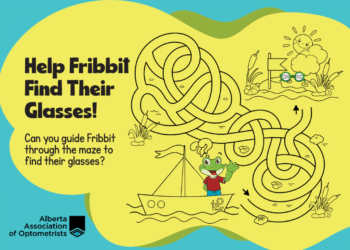
Plus: TechCrunch cautions audience about impersonators; Meta makes a controversial hire.
E.l.f. Cosmetics found itself in the hot seat this week after an ad fell flat.
The company tapped comedian Matt Rife and drag queen Heidi N Closet to play two personal injury lawyers working at “e.l.f.ino & Schmarnes,” a cheeky pair tasked with getting you the best prices on beauty cosmetics.
The actual ad? It’s a cute idea. The two personalities play up the humor and provide the benefits of how the company’s products can save you money and keep you looking fresh. It’s full of one-liners and close-ups of the products. “Has overpriced beauty hurt your wallet? You may be entitled to benefits,” they say.
But the problem is that E.l.f.’s audience, a large demographic of women, didn’t appreciate the talent choice.
That’s because Matt Rife is known for telling risqué jokes, including one that poked fun at domestic violence during his 2023 Netflix special, and being completely unapologetic about it.
E.l.f. addressed the backlash with an Instagram post.
View this post on Instagram
They said: “You know us, we’re always listening and we’ve heard you. this campaign aimed to humorously spotlight beauty injustice, we understand we missed the mark with people we care about in our e.l.f community. while e.l.f.ino & schmarness closes today, we’ll continue to make the case against overpriced beauty.”
Why it matters: E.l.f. isn’t the first company to make a misstep with an ad campaign (American Eagle anyone?) But the company seemed to go astray even after the fallout.
While they did make an apology and acknowledged that they missed the mark, they left the ad up and didn’t address how they planned to move forward and improve. Its audience noticed and plenty of people called them out for appearing to be insincere.
The company’s chief marketing officer, Kory Marchisotto, did release a statement to news outlet Business of Fashion, saying that they “picked Rife because of his overlap with their target audience — young Gen Z women. His TikTok base is 80 percent female, and 75 percent under the age of 34, right in the sweet spot.”
It’s understandable that E.l.f. was trying to play to a certain crowd, but when your audience is telling you that the move didn’t land, you have to do better than write a simple apology.
Yes, apologize. Adress the concern. But then go beyond the apology. Elaborate. Say what you’re doing to make sure you don’t make the same mistake again. When you don’t consider these extra measures of reassurance, you risk losing credibility, trust and alienating the demographic of people you sought to reach in the first place.
Editor’s Top Reads:
- The news outlet TechCrunch recently learned that scammers posing as reporters were reaching out to companies under the guise of seeking an interview. To mitigate this, and temper any negative effects, they addressed their audience directly. TechCrunch writes, “These bad actors are using our name and reputation to try to dupe unsuspecting businesses. It drives us crazy and infuriates us on your behalf.” They also gave an example of the potential motive: to seek sensitive business information. TechCrunch admitted they don’t know the full scope of why this is happening, but cautioned businesses to make sure that the reporter is who they say they are and offered a link to its staff directory. “We know it’s frustrating to have to double-check media inquiries, but these groups are counting on you not taking that extra step. By being vigilant about verification, you’re not just protecting your own company — you’re also helping preserve the trust that legitimate journalists depend on to do their jobs,” they wrote. TechCrunch further provided a list of fake domains the impersonators have been using, which amounts to more than two dozen variations. TechCrunch made the right call here. Instead of letting this potential crisis become a headline, they put the information out themselves. They addressed the concern with clarity and as much information as possible. But the outlet didn’t stop at awareness. They additionally offered solutions, provided a potential motive and gave organizations resources to ensure companies could prepare themselves for scammers.
- Meta announced the controversial hire of Robby Starbuck as an AI bias adviser this week. Starbuck previously made headlines as a conservative influencer that backs anti-DEI initiatives and blames chemicals for turning children LGBTQ+. He will now help Meta decide what’s ideologically biased. In a statement to The Advocate, Meta said, “Since engaging on these important issues with Robby, Meta has made tremendous strides to improve the accuracy of Meta AI and mitigate ideological and political bias.” There is nothing unusual about the statement itself. Meta has invested heavily in its AI capabilities and seeks to root out biased information. That’s good. But given Starbuck’s history, what does “unbiased” look like coming from someone who has very strong, divisive opinions, sometimes rooted in falsehoods? What does this tell Meta’s audience about the direction its heading? And what qualifies Starbuck to make these decisions? Meta didn’t address this. Time will tell if this move alienates stakeholders, pleases powerful politicians or if users care at all. But organizations should be very careful about associating people with a lengthy history of controversy to their brand, even if those people aren’t charged with filtering bias.
- When Taylor Swift appeared on New Heights this week, it was her first time sitting for a podcast interview. The nearly two-hour segment returned 9 million views in 12 hours, crashing the live segment at one point, the New York Times reports. Viewers received more insight from Swift during the segment than she’s been willing to discuss for years. This stripped-down interview style has become more popular for celebrity guests in the past couple of years. Josh Lindgren, head of podcasts at Creative Artists Agency, told the Times that, “Not only do these podcasts have massive reach, but they’re also places where you can have a very nuanced, long-form conversation. The editing tends to have a fairly light touch, and so it’s a place where you can go and have a conversation and expect that that’s more or less what’s going to get transmitted to your audience.” The article elaborates that podcasts offer “intimacy, not necessarily accountability” making the space feel safer. In the wide berth of information sharing, podcasts are a critical component. They can shape stories from first-hand accounts in a way that feels more authentic than a news article. Because podcasts tend to be longer, there’s also room to explore information in more depth, providing the full scope of the story the guest wants to tell, rather than a reporter, which can be beneficial to both the guest and the podcast.
Courtney Blackann is a communications reporter. Connect with her on LinkedIn or email her at courtneyb@ragan.com.
The post The Scoop: E.l.f. Cosmetics apologizes for Matt Rife ad. Its audience isn’t buying it. appeared first on PR Daily.












